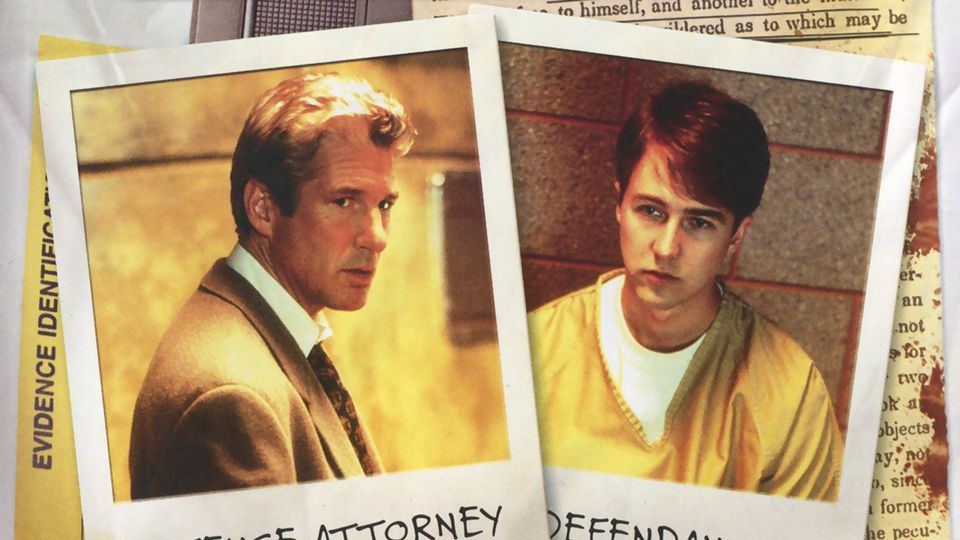By Karen - 17 August 2021

After watching this movie, you will even have deep doubts about the justice that you have always insisted on-we intend to uphold justice and punish evil, but how much can we support? law? Morality? Or is it all evidence that can be seen and heard?
The role of Martin Vail (Richard Gere), a lawyer, has nothing to do with justice from the very beginning. For money or fame, he can defend anyone's innocence. He said: "The truth is what I told the jury and wanted to get them to agree." And the female prosecutor Rena and the former top prosecutor Shanus seemed to represent the righteous side in the Rosen murder case-a The murderous demon with brutal methods is sent to the gallows. Isn't this true justice?
But as the plot unfolds, we have to invite the deceased: Lord Rosen, let's see what this poor victim did before his life? Under the banner of the church, the charity fund was invested as capital into real estate management; the intention was to build the slum into a high-priced shop, regardless of the life and death of the aborigines; not to mention making the choir boy perform pornographic performances to satisfy his perverted lust . Such a scandal makes us feel that even if Alan was the murderer, there is a righteous side to it. Look at his friend again: former Supreme Attorney Shanus. As a partner of Lawson's real estate business, this guy has committed heinous crimes in the slum reconstruction plan. In order to maintain his reconstruction plan, he even did not hesitate to make a private transaction with the leader of the slum gang. After being rejected, he killed the leader of the gang who opposed him. He is guilty, and does he need a defense? No, he has not even been investigated or prosecuted, so there is no need to find any high-sounding reasons.
In this way, we as discerning people will find it very interesting: the prosecutor in the Rosen case, Rena, is serving a bunch of pigs and a gilded "justice", everything seems so natural and righteous; but Martin Lawyer Defending a street mouse who committed first-degree murder, although we all know that pigs and dogs deserve to die, justice should not die, justice deserves to be declared...
Ah, wait. Where did I go, is Alan a good guy? What I said above seems to be misleading. Some of this man's stories are understood from the introduction. He is not a punisher seeking a kind of "dark justice". If he does not pretend to be innocent, we seem to have a glimmer of sympathy for him, but now we can only I sympathize with Martin, Rena and other lawyers who intend to pursue justice.
Poor Martin, we can now responsibly say that he is not a person who is willing to offend people unprincipled. He was also a prosecutor and worked under Shanus, but he found that his work was deviated from his original intention of pursuing justice, so he switched to being a lawyer and defending the innocent as he deserves. In this case, he tried his best to explore the evidence. After understanding the despicableness of Shanus and Rosen, he firmly defended Allen's innocence. We have a bright mindset that can be regarded as him. The intention is to maintain the buried justice. To exonerate Allen from the death penalty, the murderer who maintains this justice is his means to maintain justice. Unfortunately, as soon as he was concealed by falsehoods, he didn't realize until the end that Allen, who was released, was also a hypocritical villain.
Poor Rena, although it is a natural principle to kill and pay for life, we still stubbornly believe that Allen (not Roy) should not be executed under such "justice". But Rena's pursuit of justice was too superficial. Her prosecution met Shannon's needs, but this in itself had nothing to do with the claim to justice, because Shannon and the dead Rosen had countless damn crimes.
We can say: They were abandoned by the justice they were looking for, and what they were looking for was not true justice.
Before his death, Rosen made such a joke when he spoke at a charity gathering: "Since I have been listening to confession in the confession room for many years, I have never seen so many politicians and lawyers gathered together." The implication is self-evident, Rosen. At this moment, he still uses himself as a pure image to ridicule the crimes of politicians and lawyers. It is a pity that this little pureness also collapsed with the disclosure of his life information in this film.
For this film, we might as well say: "Since I have been pursuing justice for many years, I have not seen so many justices gathered together." But unfortunately, we can't find the slightest sign of justice being claimed in this film.
True justice never appears in front of people, it can never be upheld by any laws and morals, and it can never be claimed by any evidence. The law can be imperfect, morality lacks the guarantee of coercive force, and evidence is the easiest to falsify and blind people's eyes.
To be more precise: poor justice.


